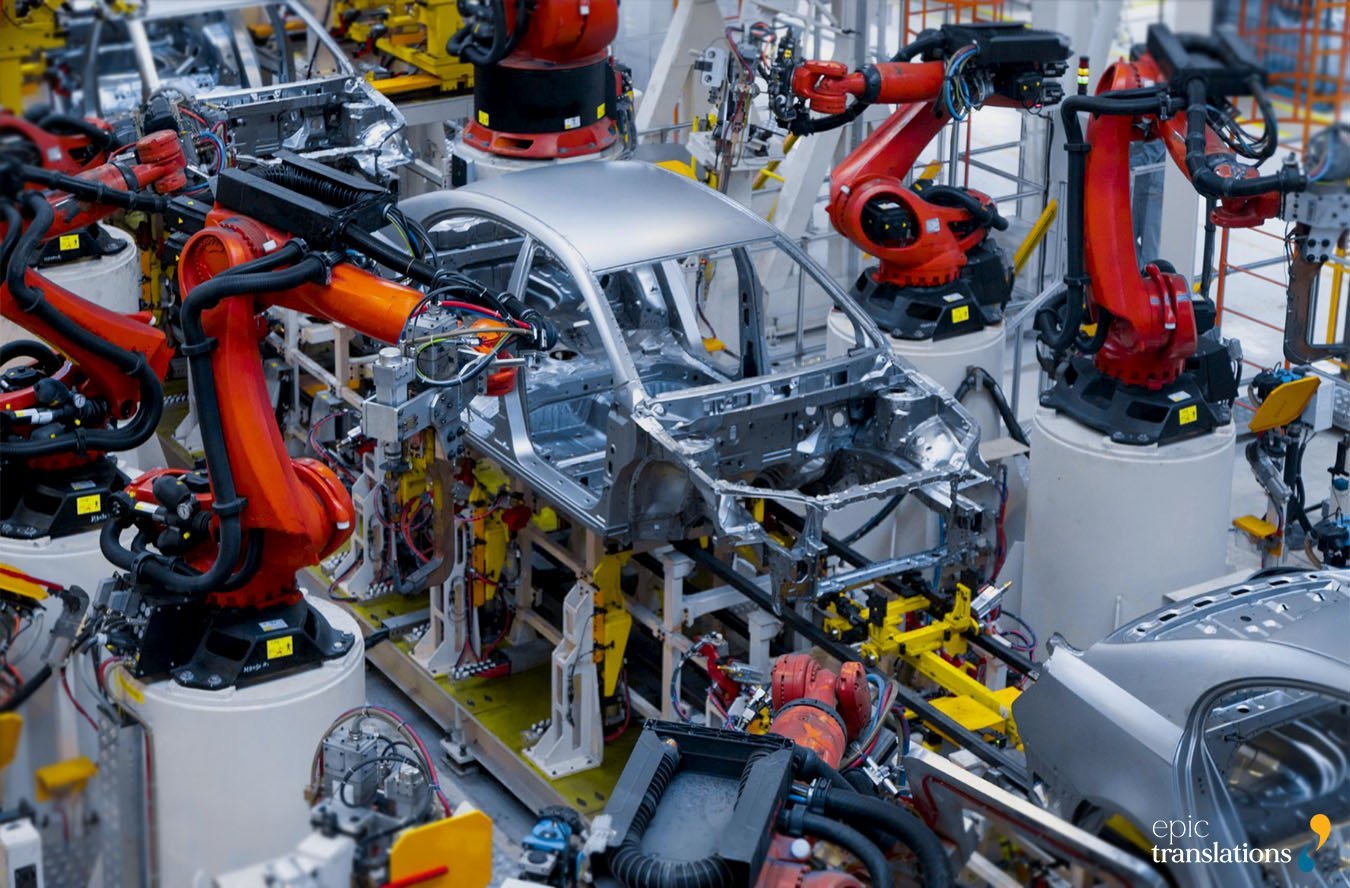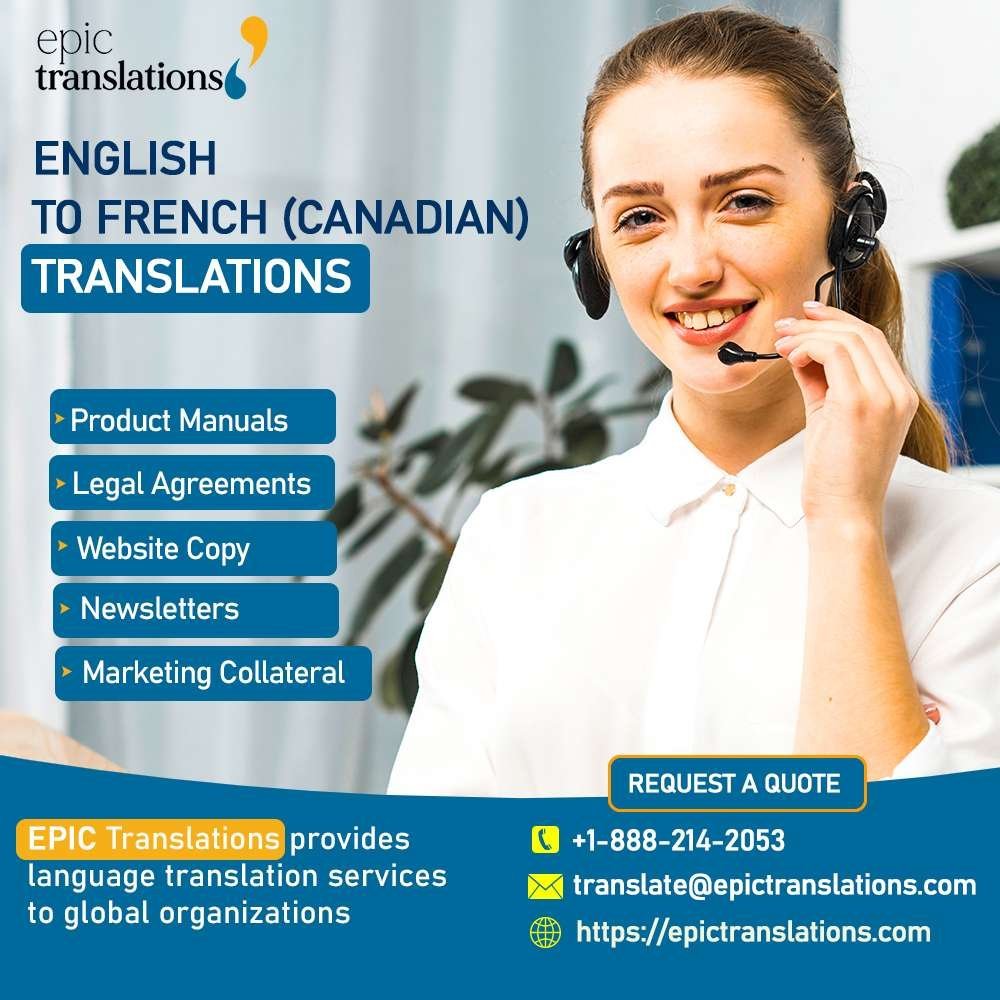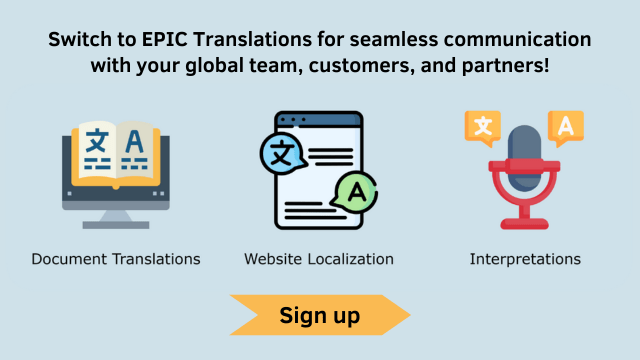
In today’s global economy, strong business relationships are more important than ever. This is especially true for industrial automation equipment manufacturers, who have to deal with a maze of international standards, regulations, and customer expectations. Effective communication is key to navigating these challenges, and for companies operating in Canada, French (Canadian) translations are essential.
What is the Best French Speaking City in Canada?
Quebec, the largest province in Canada, is mostly French-speaking, with over 85% of its people using French as their first language. This means that if you want your business to succeed in Canada, you need to prioritize English to French (Canadian) translations.
For industrial automation equipment manufacturers, clear and precise communication is a must. Technical documents, user manuals, product descriptions, and marketing materials all need to be accurately translated to ensure they are understood by French-speaking customers, partners, and regulatory bodies. Miscommunications or misunderstandings can lead to costly mistakes, damage your reputation, and result in lost business opportunities.
Building Trust Through Language
Language is more than just a way to communicate; it’s a powerful way to build trust and connect with people. When companies invest in high-quality English to French (Canadian) translation services, they show respect for their customers’ language and culture. This can greatly improve business relationships, leading to more loyal customers and a stronger presence in the market.
In the industrial automation sector, where products are often complex and highly technical, accurate translations are crucial. Technical specifications, safety instructions, and operational guidelines need to be translated precisely to ensure they are understood and followed correctly. This not only helps prevent accidents and equipment malfunctions but also builds trust in the manufacturer’s commitment to quality and safety.
Overcoming Technical Translation Challenges

Translating technical documents in the industrial automation field is no easy task. The terminology is highly specialized, so translators need a deep understanding of both the languages and the industry. They need expertise in areas like engineering, electronics, robotics, and software development.
To get accurate translations, manufacturers should partner with a professional document translation services company experienced in industrial automation. These services have translators with the technical know-how and language skills to handle complex terms and ensure translations are accurate and culturally appropriate.
The Role of Localization
Localization is more than just translating words; it’s about adapting content to fit the cultural and regulatory context of the target market. For French (Canadian) translations, this means not only translating the text but also taking into account regional linguistic nuances, measurement units, and industry standards specific to Canada.
In the industrial automation industry, for example, certain technical terms or abbreviations might have different meanings or connotations in French. Additionally, Canadian regulations might require specific safety warnings or compliance statements that are different from those in other French-speaking regions. A localized approach ensures all these factors are considered, resulting in materials that connect with the target audience and meet local requirements.
Enhancing Marketing Efforts
Effective communication in French (Canadian) can really boost your marketing efforts. Marketing materials like brochures, websites, and social media content need to be engaging and persuasive to attract and retain customers. Providing these materials in French allows manufacturers to reach a wider audience and improve their brand’s visibility in the Canadian market.
SEO (Search Engine Optimization) is another crucial part of marketing that benefits from localization. By using French keywords and phrases relevant to the industrial automation industry, manufacturers can improve their search engine rankings and drive more traffic to their websites. This can lead to more inquiries and sales.
Case Study: Success Through French (Canadian) Translations

To show the impact of French (Canadian) translations, let’s look at a leading industrial automation equipment manufacturer that expanded into Quebec. At first, the company struggled to gain traction because of language barriers and cultural differences. Realizing the importance of effective communication, they invested in professional French (Canadian) translations for all their technical documents, marketing materials, and customer support resources.
This investment paid off. The company built stronger relationships with local customers and partners. French-speaking customers appreciated the effort to communicate in their native language, which led to increased trust and loyalty. The company also saw better compliance with local regulations, reducing the risk of costly fines and legal issues.
Additionally, their localized marketing efforts resulted in a noticeable increase in website traffic and customer inquiries. By providing a seamless and culturally relevant experience, the company successfully established itself as a trusted and respected player in the Quebec market.
How Much Does English to French (Canadian) Translation Cost?
The cost of translating documents from English to French (Canadian) can vary widely based on a few key factors. These include how complex and technical the content is, the length of the document, and how quickly you need the translation. Generally, translation services charge per word, with rates usually between $0.10 and $0.30 per word. Technical documents, especially in fields like industrial automation, tend to be on the higher end of this range because they require specialized knowledge. Additional costs might come into play if there are specific formatting requirements. Businesses should keep these factors in mind and choose professional translation services that provide both quality and value. Quality comes at a price and in the document translation services space, the saying ‘you get what you pay for’ is quite true. If you are serious about communication with your French (Canadian) speaking stakeholders, then do not look for the cheapest price out there.

When Are French (Canadian) Translations Required in Canada?
French (Canadian) translations are required in Canada to comply with legal regulations and to effectively communicate with the French-speaking population in Quebec and other regions. Here are some key use cases when French (Canadian) translations might be necessary for you / your company:
- Legal and Regulatory Compliance:
- Official Documents: Any official documents, such as contracts, agreements, and legal notices, must be available in both English and French (Canadian).
- Product Labels and Packaging: Consumer products sold in Canada must have bilingual labels and packaging. This includes ingredients, instructions, and safety warnings.
- Workplace Safety: Occupational health and safety guidelines and manuals must be available in both languages to ensure all employees understand the procedures and regulations.
- Government Services and Communication:
- Public Services: Government agencies are required to provide services and communicate with the public in both English and French. This includes forms, notices, and informational materials.
- Educational Materials: Schools and educational institutions must provide materials in both languages to accommodate students in both English and French-speaking regions.
- Marketing and Advertising:
- Advertising Campaigns: Marketing materials, including advertisements, brochures, and websites, must be available in both languages to reach a broader audience and comply with advertising regulations.
- Customer Support: Companies must offer customer support in both languages to effectively serve French-speaking customers and maintain good customer relations.
- Public Communication:
- Public Signage: Signs in public areas, such as airports, hospitals, and government buildings, must be bilingual to ensure accessibility for all Canadians.
- Emergency Information: During emergencies, information must be communicated in both languages to ensure that all citizens receive crucial updates and instructions.
- Business Operations:
- User Manuals and Technical Documentation: For products and equipment sold in Canada, user manuals, technical documents, and installation guides must be available in both languages.
- Internal Communications: Companies operating in bilingual regions or with a diverse workforce should provide internal communications in both languages to foster inclusivity and clarity.
EPIC Translations Can Help

By adhering to the above mentioned requirements, businesses and organizations can ensure they meet legal standards and effectively communicate with the diverse population of Canada, fostering trust and building stronger relationships with their French-speaking customers and partners.
- EPIC Translations has nearly 20 years of experience in the document translation services space.
- We have more than 20,000 human translators.
- We have our own GPT based AI translation software for your informal content
- We provide over the phone (OPI) interpreting
- We provide sight translations
- We provide website localization service
- We provide desktop publishing (DTP) service for your manuals using Adobe Creative Suite
- We provide onsite interpretation services
To get started, please fill out our brief quote form and we’ll be in touch with you right away.
Who Offers English to French (Canadian) Translation Services?
EPIC Translations is your best bet for acquiring English to French (Canadian) translation services if you are in the industrial automation equipment manufacturing space.
- We have been operating in the translation services sector since 2008.
- We have over 20,000 experienced human translators
- We support over 150 languages
- We have our own GPT based AI translation software
- Our prices are affordable and we do not compromise on quality
- Some of the biggest brands and governments and schools trust us
Conclusion
In the competitive world of industrial automation, effective communication is crucial for building and maintaining strong business relationships. For manufacturers aiming to succeed in the Canadian market, investing in high-quality English to French (Canadian) translations is a must. Accurate and culturally appropriate translations help build trust, ensure compliance with local regulations, and enhance marketing efforts.
By working with a professional translation services company, such as EPIC Translations, you will have a partner that understands the intricacies of the industrial automation industry. You will be able to tackle the challenges of technical translation and localization needs for your Canadian stakeholders. This not only helps prevent costly mistakes but also opens up new opportunities for growth and success in Canada’s diverse and dynamic market.
In short, strengthening business ties through French (Canadian) translations is more than just a smart strategy; it’s essential for industrial automation equipment manufacturers who want to thrive in Canada. It shows a commitment to quality, safety, and customer satisfaction, leading to stronger business relationships and a competitive edge in the market.
Start Your Journey with EPIC Translations
At EPIC Translations, we’re dedicated to sharing your message with the world. From product manuals and company newsletters to app/website localization and legal documents, we provide English to French (Canadian) translation services that bridge language barriers.
Take a moment to watch a brief video featuring our English to French (Canadian) translation service for the Canadian market.
Ready to begin? Fill out our contact form now to access personalized English to French (Canadian) translation solutions that will elevate your global communication strategy in Canada.
